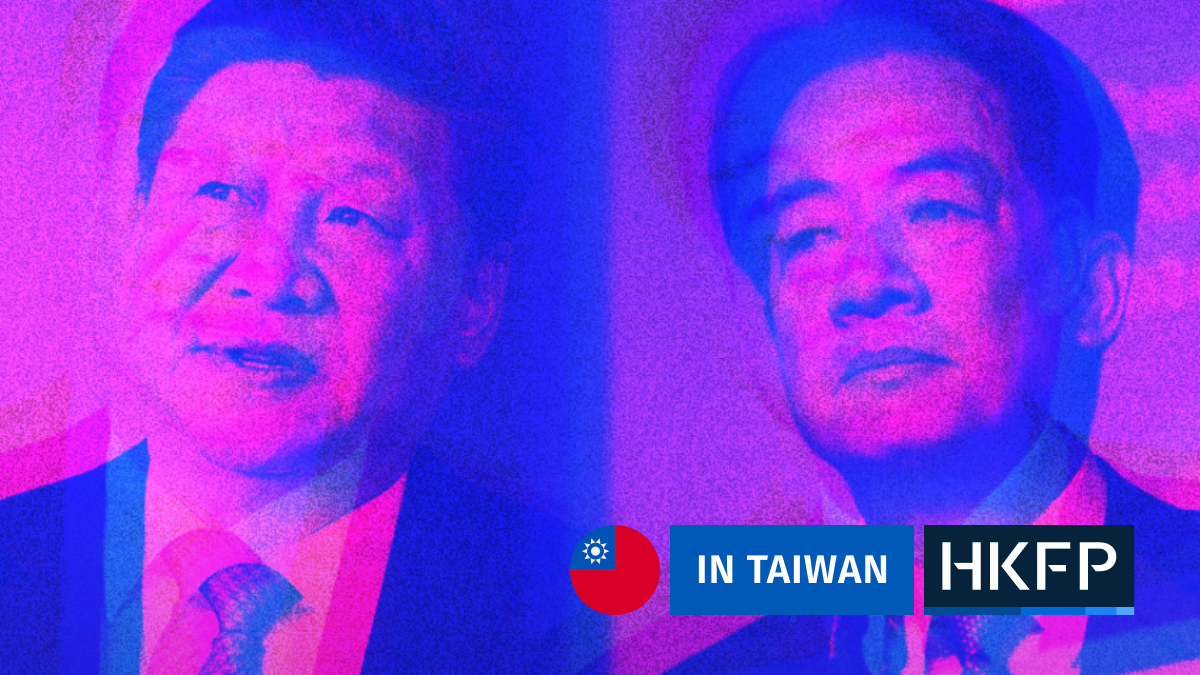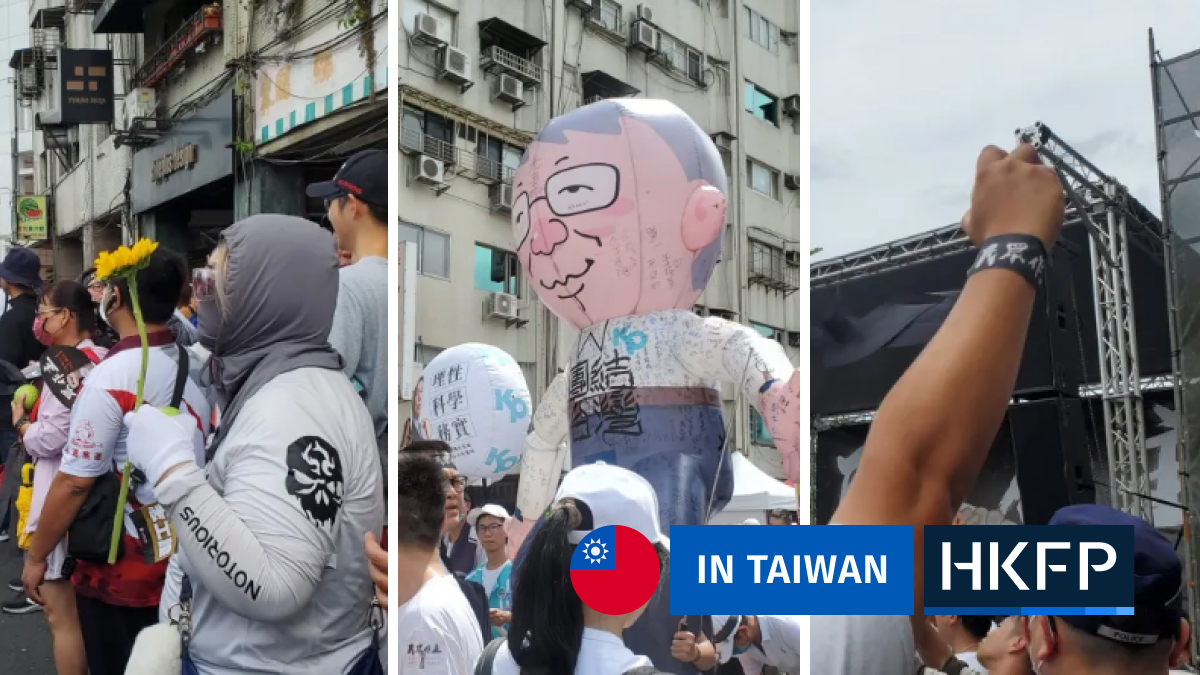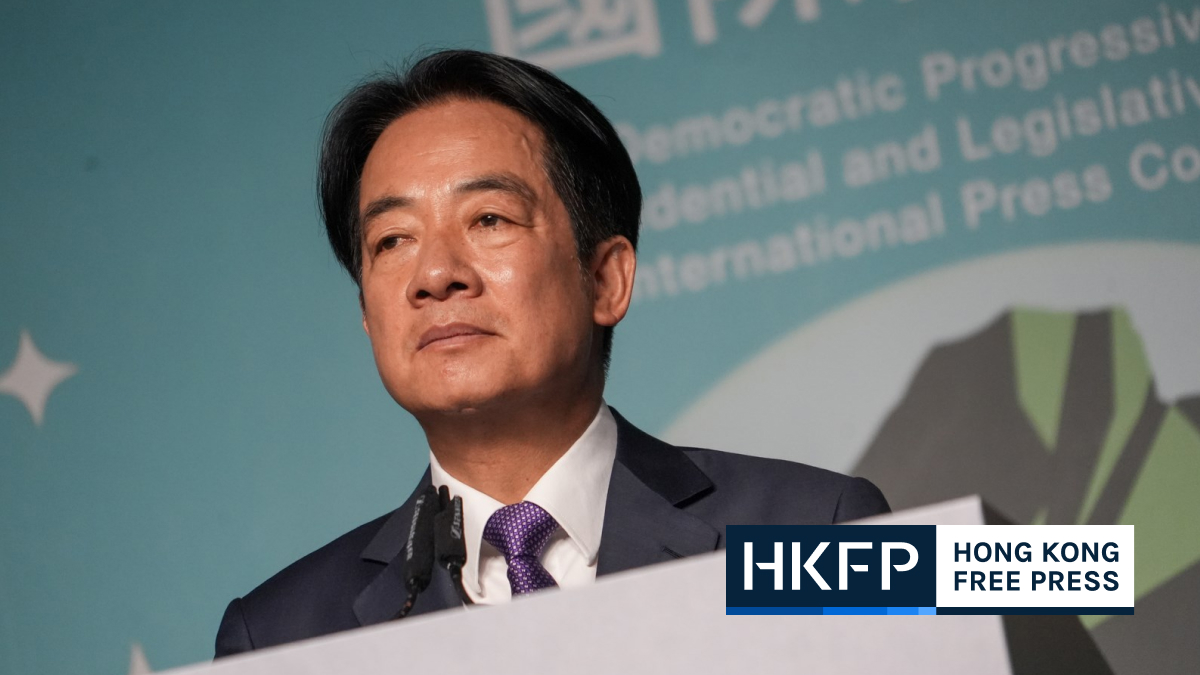Excluding migrant domestic workers from Hong Kong’s second round of the consumption voucher scheme was discriminatory, domestic worker activists and union groups have said, with one calling the move “heartless.”
Financial Secretary Paul Chan announced on Monday that the latest round of payouts will benefit non-permanent residents, such as those under the Quality Migrant Admission Scheme, who will be eligible to collect HK$5,000. However, migrant workers were excluded from the scheme, which was designed to help stimulate the local economy amid a pandemic-related downturn, for a second consecutive year.

The exclusion was disappointing and frustrating, but “not surprising,” Eman Villanueva, spokesperson of Asian Migrants’ Coordinating Body, told HKFP.
“It only shows the hypocrisy on the side of the government. They repeatedly said… they value migrant domestic workers, they value our immense contribution to the Hong Kong society and family. But that’s all talk. They don’t really walk the talk… All [the] ‘we recognise you, we value you,’ [it’s] all bullshit,” Villanueva said.
‘Second, or third class citizens’
Villanueva said that if migrant domestic workers were eligible for the consumption vouchers, it would be a benefit to Hong Kong’s economy, since it can only be spent locally.
“So why? There is really no logical explanation other than the government is treating us as, maybe not just second class, but third class citizens in Hong Kong.”

Villanueva said migrant domestic workers have been on the frontline during the pandemic, some of them serving Hong Kong families even while being infected with Covid themselves. He said the community had been asking the government to be included in financial aid programmes, and asked Hongkongers to speak out for them as well.
Villanueva’s frustration was shared by other migrant worker activists in Hong Kong.
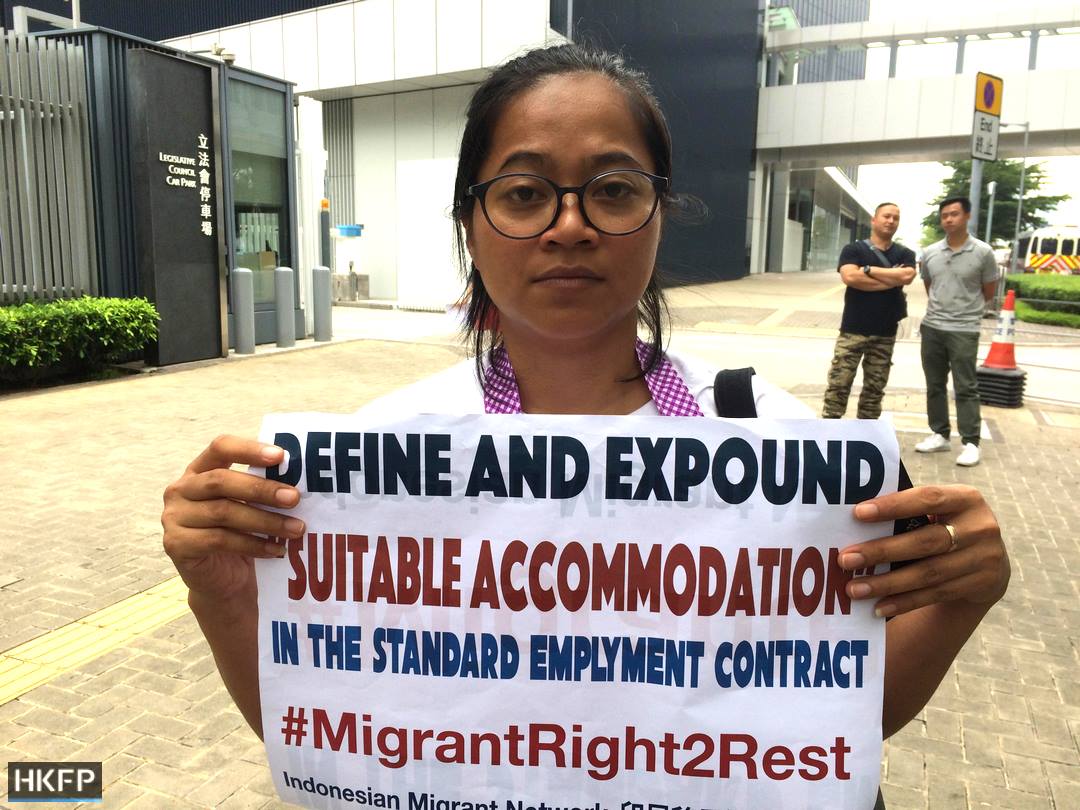
“Freezing of Wages and exclude Migrant Domestic Workers in Hong Kong in financial schemes is unsympathetic to the current situation of Migrant Domestic Workers During the COVID19 Pandemic,” Sring Sringatin, who heads the Indonesian Migrant Workers Union, wrote on Facebook on Wednesday.
Sringatin said many domestic workers had been overworked during the pandemic, working long, unregulated hours. Some were not allowed to take any time off, Sringatin said, but “the government does not seem to care” and “does not provide a solution” to help alleviate their burden.
Hierarchy
Hong Kong Federation of Asian Domestic Workers Unions said the exclusion of migrant domestic workers from government’s consumption voucher scheme move showed there was a “hierarchy” among non-permanent residents. “Migrant workers are always on the lowest level,” said the group’s organising secretary An An.
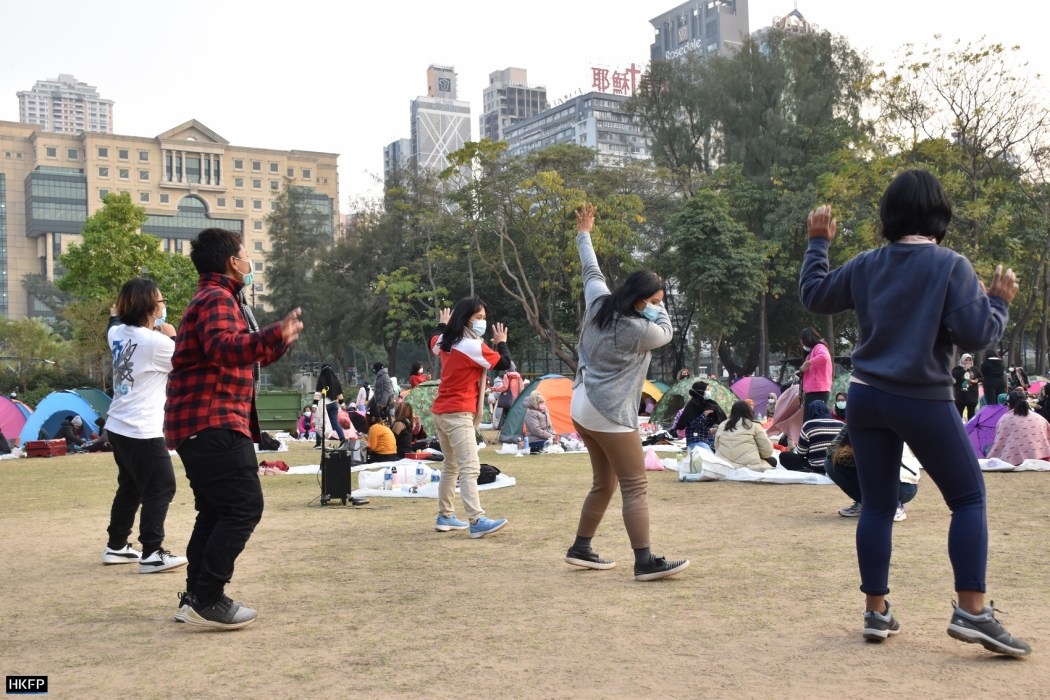
The activists said that discrimination against and exclusion of migrant workers pre-dated the pandemic. They were always ineligible for financial aids or sweeteners if there was a surplus in the fiscal year, they said.
Villanueva called on authorities to reconsider its “heartless” decision and show migrant workers that the government cared about them.
Support HKFP | Policies & Ethics | Error/typo? | Contact Us | Newsletter | Transparency & Annual Report | Apps
Help safeguard press freedom & keep HKFP free for all readers by supporting our team

LATEST FROM HKFP
HKFP has an impartial stance, transparent funding, and balanced coverage guided by an Ethics Code and Corrections Policy.
Support press freedom & help us surpass 1,000 monthly Patrons: 100% independent, governed by an ethics code & not-for-profit.






